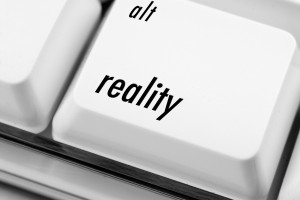Archive for the ‘meaning’ Category
The Three Thieves of Happiness
Monday, July 14th, 2014 Do you want to be happy? It’s a simple question. Or is it?
Do you want to be happy? It’s a simple question. Or is it?
One of my favorite reads over the last few years has been The Untethered Soul, by Michael A. Singer.
Singer proposes that there is only one fundamental choice to make in life.
“The highest spiritual path is life itself. If you know how to live daily life, it all becomes a liberating experience. But first you have to approach life properly, or it can be very confusing. To begin with, you have to realize that you really only have one choice in this life, and it’s not about your career, whom you want to marry, or whether you want to seek God. People tend to burden themselves with so many choices. But, in the end, you can throw it all away and just make one basic, underlying decision: Do you want to be happy, or do you not want to be happy? It’s really that simple. Once you make that choice, your path through life becomes totally clear.”
So what’s your answer to this essential question: Do you want to be happy? Yes or no?
Okay, I’m a great psychic. You answered, yes. Didn’t you?
But did you really? Or did you actually answer the question, “Do you want to be happy, when and if?” Because—for most of us—our answer to the first question is really a qualified yes—as in, yes, as long as certain conditions are met first.
And it’s these qualifications that I’ve come to think of as The Three Thieves of Happiness.
So I’ve put out a BOLO—police lingo for be on the lookout—for these three thieves, along with a way to keep them from breaking into your House of Happiness.
Thief #1 — Wait For It, It Won’t Happen Until
This thief has convinced you that you must wait for your happiness. You can’t be happy until you get that job, meet the partner of your dreams, get in shape, or win the lottery. The idea that your happiness has to wait for some future condition has crept in and stolen the happiness right out from underneath your nose.
Here’s how to keep this thief out of your House of Happiness:
Being content or grateful for what you have now is the best defense against this thief. Even if you want something in your life to change, you can be happy while waiting for it.
Start by seeing the opportunity in your present condition. What you’re presently experiencing is a necessary part of the journey toward realizing your future dream. You can’t get there unless you travel the only road currently available to you.
It might be a little bumpy but it’s going to get you there, nevertheless. Even if you’re at the 50 mile marker on a 100 mile road, you’re on it. And once you arrive, your future dream will be there at the end of it. Just keep moving, and be grateful for the journey. If you haven’t arrived, yet, that doesn’t mean that you have to be unhappy the entire way there. You can choose to be happy. Say only, yes!
Thief # 2 — Only If and When
You’re holding out for a better world—The World According to Me. I’ll be happy only if and when my husband remembers flowers on our anniversary, the kids listen, drivers are courteous, and the current world politics are to my liking. You’re holding out for the world to conform with your rules—your personal preferences, opinions, and judgments.
This thief is the incessant and ludicrous idea that the world and all the people in it must meet all of your expectations of how things should be. You set yourself up with conditions which must be met before you’ll allow yourself to choose happiness. You’re using your misery to prove a point.
Here’s how to keep this thief out of your House of Happiness:
It’s simple: Stop expecting life to unfold according to your set of shoulds. Anytime you’re unhappy, it’s because you have an expectation of life that it doesn’t have of itself. Saying something shouldn’t be the way it is, won’t change that it IS. Whether you like it or not, it is what it is. You’re being unhappy in an unhappy world doesn’t make it any less unhappy. To quote Dr. Switzer (a.k.a, my favorite comedian, Bob Newhart) , “STOP IT!” You can choose to be happy instead. Say only, yes!
Thief # 3 — The World’s Deadliest Belief (TWDB)
You unconsciously believe: “Other people, events and circumstances are the cause of how I think, feel and behave.”
If ever there was a Master Thief, this one has got to be it!
It doesn’t just steal from your House of Happiness, it pulls it up and takes it away—foundation and all. You can never go home again!
In giving your truth to TWDB, you give it permission to single-handedly steal your sense of control over the responses you have in life. Instead of consciously responding to life, you find yourself in a constant state of knee jerk reactions. This thief doesn’t need to steal your house, because you’re giving it away.
Here’s how to keep this thief from taking your House of Happiness:
Decide for yourself that no one and nothing has the power to make you think, feel or do anything, without your express permission. I finally got this one when a question rebounded in my brain, “who’s the jerk in knee-jerk?” And it was me.
I get that you might not like what’s happening or what other people say and do, but that’s not the cause of your unhappiness. It’s your interpretation—the meaning you’re making up about what it means about you or for you— that’s got your knickers in a twist. Find out what’s missing in your perspective or beliefs that—if you had it—would eliminate your upset.
Work on creating a solution out of the answer to that question and live from it and through it.
Be a chooser, not a loser. There’s no gain in giving away “your house.” Choose to make it burglar proof.
In short, make enduring happiness more important than any circumstance, event or anyone’s opinion and your life suddenly becomes unflaggingly happy.
The Three Thieves might not be happy, but you sure will!
‘Perhaps’ ~ Life is By Adventure
Tuesday, April 1st, 2014 How often does life go exactly according to your plans for it? If you’re like most of us, not so often, right?
How often does life go exactly according to your plans for it? If you’re like most of us, not so often, right?
I’m not here to discourage the perspective that we’re in many ways the author of our lives. It’s healthy to plan for the positive. It’s just that I think it’s time to grow up to the idea that we have absolutely no control over what IS.
Believe me, I sympathize if this is a little uncomfortable to embrace; mostly because, I like being in control too. Here’s the thing. I just don’t try to control the wrong stuff anymore. Because what is always trumps our plans for what we think it should be. And there’s no use fighting the facts.
There are two stories to everyone’s life: the one that is and the one we think it should be. When life’s going as we think it should be, those two stories — The Story of Is and the Story of Should Be — don’t stray too far from the same plot line. But whatever harmony that exists between those stories is usually short lived, as Life continues to unfold into the Story of Is.
And The Story of Is and the Story of Should Be are usually contradictions to one another. I should have gotten that raise. Kids should be more respectful. Drivers should be more courteous. But whatever we think, our shoulds never change the is. They do, however, create an undefeatable unhappiness.
In my own Story of Should Be, right now I’m at the gym shedding some winter weight that’s been holding on as stubbornly as the snowbank still outside my window. That’s what should be. However, in The Story of Is, I’m sitting not so comfortably—okay, in massive pain—almost flat on my back staring out the window at that aforementioned snow. Apparently, my back didn’t get the memo marked “should” and simply is what it IS. Not only can I not go to the gym, I can’t stand up without assistance.
Okay, that’s the bad news. Here’s the good.
The moment I surrender to what obviously is, I can change my should be to a perhaps.
Perhaps, if I wasn’t flat on my back I wouldn’t be writing this. And perhaps, my perhaps story will help someone else create their own. Perhaps, this isn’t happening to me. Perhaps, it’s happening for me. Perhaps, it’s happening so that I can help others. Perhaps, by the time I finally get to the gym, I’ll be twice as motivated.
I’m intrigued with the idea of creating and keeping a perspective that allows for the possibility that what IS might just be an opportunity to create a perhaps. I looked up the etimology of the word, by the way. It means: “by, through” + happening, chance or adventure.
It’s natural for us to create a Story of Should Be (as in: I believe, I prefer, I desire), but it needn’t make us miserable. Because there’s a Third Story we can create, if we choose to.
The current Story of Is can become a far more exciting Story of Perhaps.
Perhaps, Life is By Adventure!
Do you have a Story of Perhaps you’d like to share? I’d love to hear it. Post it below!
Truth or Consequences? Pick One
Thursday, March 1st, 2012 “When it comes to The Truth, all of us are liars.” (sayings by lp)
“When it comes to The Truth, all of us are liars.” (sayings by lp)
Truth can never be measured in absolute terms of truth-y-ness (yup, I just made that up).
Truth is relative … it’s not absolute. What is unquestionably true for any one individual or group is often questionable to another.
Just ask Republicans and Democrats. They can look at the exact same evidence and use it to support their own version of The Truth. Which is just their way of saying what they believe to be true.
You might ask, “How does this happen?” Well, chalk it up to the fact that GrayBall the Brain is a meaning making machine. It’s constantly evaluating situations and circumstances to assess what they might mean.
When we’re children, these meanings are almost exclusively about who we are, and our relationship to the world around us. These meanings later come to shape the Truths we come to live by . . . in other words, our beliefs.
Unfortunately, all this is taking place at a time when Brain is woefully lacking in “executive function,” not to mention life experience. It’s not able to assess whether any given meaning is healthy or toxic. Keep in mind that it’s essentially making the meaning up in the first place. And the meaning it’s making up? That’s what makes this so crazy – because it’s no more true than any other meaning it could be making up, if only it knew to make it.
Are you beginning to see the problem here?
But wait . . . it gets even crazier. Because once GrayBall makes up a meaning, it then looks for evidence to support it, which it then uses as a way to ‘make true’ its meaning.
So, although we might think that our beliefs are founded on evidence, it’s really the other way around. We believe something is true; therefore, we see evidence that it is. There’s a saying, “If you walk through the world with a hammer, you’ll find a lot of nails.”
Did you catch the fundamental flaw in all of this?
That’s right … Brain doesn’t look for counter-examples that don’t support it’s meaning. Like a heat seeking missile; it’s only looking for what it’s looking for … never what it’s not.
And, because it didn’t look for counter evidence to begin with, it will never look for it in the future. That’s why people continue to carry a felt belief that they are not capable, or good enough, or (fill in the blank) even after accumulating of a ton of life experience (evidence) to the contrary.
GrayBall makes up the meaning, finds the evidence, and then convinces itself that the meaning it only made up in the first place is – in fact – the only possible Truth. Ultimately creating a situation in which no other meaning can then exist.
And if that’s not crazy, I don’t know what is.
This is why it’s nearly impossible to have a sensible discussion about what’s True and what’s Not True. And it also explains why it’s a futile endeavor to try to talk someone out of a belief… especially when it comes to themselves. GrayBall has tricked them into believing that what they think about themselves is verifiably true.
So depending on how you look at it, unfortunately, there is no Truth-o-Meter. There’s no way to measure absolute Truth.
But fortunately, there’s something we can measure. And that’s the result any particular Truth has on our lives.
Simply stated, we can measure the consequences of holding onto a belief. Rather than focusing on whether or not something is True, we can ask whether it was ever useful to believe it in the first place.
That’s why I am always more interested in the consequences of a Truth over its relative truth-y-ness. One I can measure. The other? Well, it just starts arguments.
So here’s a challenge for you.
What Truths are operating in your life? What do you think is true about you?
And, more importantly, what do these truths cost you in terms of happiness, fulfillment, passion, enthusiasm, or optimism? Are they supporting your success or are they undermining it?
Because if your Truths are questionable, the results of hanging on to ones that don’t support you are not.
So pick one. Truth? … or … Consequences?
How You Create Your “Reality”
Monday, January 16th, 2012Today’s Post Is Excerpted From “The UnifiedMind Classroom”
You Say “Tow-may-tow” and I Say “Toe-ma-toe”
 Our neurological and physiological processes, both Conscious and Unconscious, and our interpretations of external stimuli by way of our five senses (sight, hearing, smell, taste, touch and feelings) create our individual and personal meanings of the world around us.
Our neurological and physiological processes, both Conscious and Unconscious, and our interpretations of external stimuli by way of our five senses (sight, hearing, smell, taste, touch and feelings) create our individual and personal meanings of the world around us.
The transformations that take place within a human being in order to understand and process information become the basis of each individual’s unique subjective experience of our consensual reality.
Filters play a critical role in how these transformations take place.
Filters are unconscious and/or neurological factors that constrain or influence the availability, quantity and quality of information coming to us from the outside world. Filters structure our interpretation of the outside world and shape our subjective reality (our values, identity and beliefs).
 These filters can be a combination of biological, neurological, psychological, physiological, and socially biased constraints.
These filters can be a combination of biological, neurological, psychological, physiological, and socially biased constraints.
As an example: collectively, humans can only perceive a small spectrum of available light; individually, a particular individual may be color-blind, unable to see all the colors available to human beings in general. Additionally, certain cultures have fewer words (distinctions) for classes of colors, while others have many.
The three filters that shape our subjective reality are deletion, distortion and generalization.
Deletion is the process of selectively paying attention to some portions of experience, while excluding others – in part or in total.
For instance: as you are reading this, not being consciously aware of the temperature of your feet, the movement of your eyes across the page, or otherwise directing your attention away from distractions while reading.
Distortion is an unconscious process wherein an individual filters and massages data coming to them from the outside based on their subjective ‘deeper meaning’. Using this deeper meaning enables us to distort reality or to distort our interpretation of reality.
We distort reality when we imagine things that do not exist (things that defy the natural order) or by drawing conclusions about existing information and projecting our conclusions forward in time (things that do not exist yet, such as a future event).
 An example of our ability to create things that defy the natural order is demonstrated in our ability to picture a pink elephant, even though never having seen one in real life.
An example of our ability to create things that defy the natural order is demonstrated in our ability to picture a pink elephant, even though never having seen one in real life.
We distort our interpretation of reality when we filter information on the basis of our personal bias and/or conclusions and then project them upon reality. An example of a distorted interpretation is that of an insecure individual, who upon entering a room where people immediately look at him, jumps to the conclusion that they were talking about him.
Generalization is the process where an individual’s initial encounter with a particular experience – their prior perceptions, interpretations and learnings – forms a blueprint.
This blueprint then acts as a guide against which other similar experiences – or an entire category or class of experience – can be compared.
We immediately form a conclusion, “this is like that.” In the absence of prior experience, generalization also enables us to fill in the gaps.
An example of generalizing experiences is, “I can tie the laces on this blue shoe, I can tie the laces on that red shoe, I can tie the laces on all shoes, I can tie the ribbon on this bonnet, even though I’ve never done this before.”
Our consensual reality is our shared reality, the world outside ourselves. Because we all have access to this consensual reality, we believe and act as if we are all experiencing reality the same way. In so doing, we often over-estimate the degree to which we actually do experience the same thing.
Indeed there are things that we can agree on. A snake is a snake no matter who perceives it. However, one person’s subjective reality regarding snakes may cause them to fear snakes (perhaps even to the point of a phobic reaction when in the presence of one).
This subjective reality (personal model) and corresponding response is quite unlike someone who is fascinated with snakes and studies them for a living.
Stated in a more personally relevant way, consider the puzzling experience of having members of your family recall a different version of a shared event.
Though the event was the same, the interpretation of that event by each individual is unique to them. Because we share an experience, we often expect consensus in our interpretations. However, we are often frustrated to discover that the real story (ours) is often dismissed or rejected.
If we could truly inhabit another person’s mind for a day, it would be a very different and strange world from our own.
“Numero Uno”
Tuesday, November 1st, 2011 Today, I couldn’t help notice all those 1’s . . . 11/1/11.
Today, I couldn’t help notice all those 1’s . . . 11/1/11.
Some of us might wonder a bit about the superstitious, esoteric or magical significance of that.
In fact, right now, there’s a viral little e-mail going around about “the Chinese moneybag year.”
According to which – based on the frequency of the repetition of the number 1 in so many dates in this calendar year – “I” am coming into a TON OF MONEY.
So many 1’s.
In fact, in this the year of 2011, if you add your age to the year you were born, guess what? You end up with the number 1011. How special is that . . . and how special are you?
I’m sure there’s some mathematical explanation, but it’s not nearly as much fun as the implied magic of it all.
So I can’t help but look at all those 1’s and imagine a hidden meaning. A personal sign, a portent, a divine message of some kind. We humans are like that.
But this is where it gets tricky. Because numerologists are at this moment shaking their heads in wonder too.
At us.
They too are calculating the more esoteric significance of this date and this year.
But actually they use the full date to calculate it’s meaning, which is 11/1/2011.
Darn that pesky “2“. That’s a game changer.



